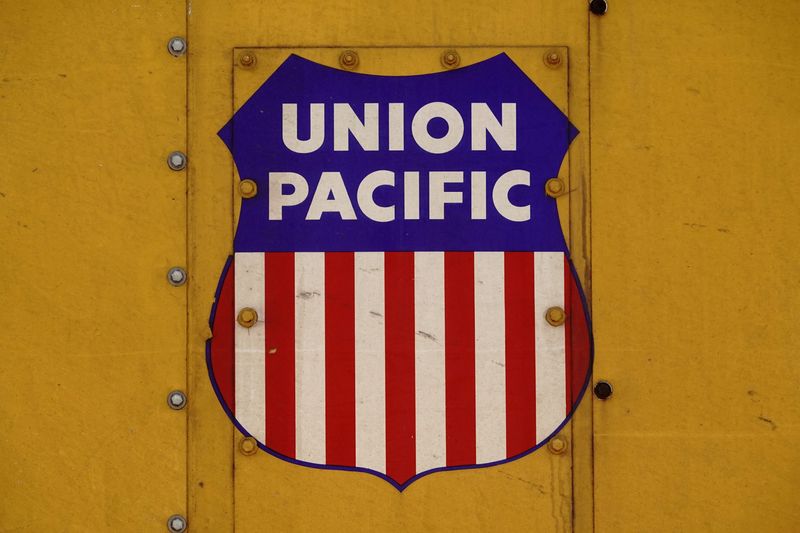By Ananta Agarwal
(Reuters) -Railroad operator Union Pacific (NYSE:UNP) said it will restart share repurchases in the second quarter as it beat Wall Street estimates for first-quarter results on Thursday, with strong pricing and productivity gains offsetting lower volumes.
Shares of the company were up about 5%.
The company, seen as a bellwether for the U.S. economy, has continued to face volume headwinds while maintaining excess capacity.
The slowdown in demand is particularly pronounced in coal, where first-quarter shipments declined 20%, with the U.S. turning to cheap stockpiles of natural gas instead for energy.
"Excluding coal, volumes would have been up close to 2% year-over-year even in this tough freight environment," the company said in a post-earnings call with analysts.
In response to a challenging market, the railroad operator has continued to price its services above the rate of inflation, mirroring a trend seen across sectors such as retail and industrials.
The company said it still sees the "same economic uncertainty", but added that it is having "deliberate conversations with customers on price increases" to overcome cost inflation.
Union Pacific reported operating revenue of $6.0 billion in the first quarter ended March, flat year-on-year but above analysts' estimates of $5.98 billion, as per LSEG data.
Its net income of $1.6 billion, or $2.69 per share, was also flat year-on-year but came in above estimates of $2.51 per share.
The Omaha, Nebraska-based company has been trying to offset lower volumes by improving service metrics such as operating ratio and freight car velocity.

The profit and margin beat confirm that service improvements are working, setting the company for "an acceleration of incremental margins when freight demand becomes a tailwind," said Jonathan Chappell, equity analyst at Evercore ISI, in a note.
After increasing for several quarters, Union Pacific's operating ratio, a keenly watched metric which indicates operating expenses as a percentage of revenue, declined to 60.7%, compared to last year's 62.1%.